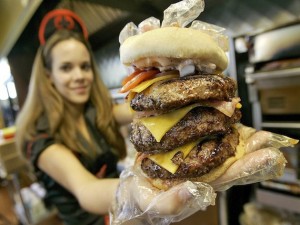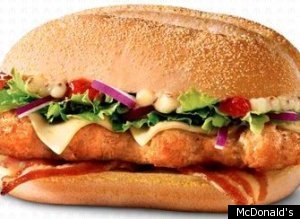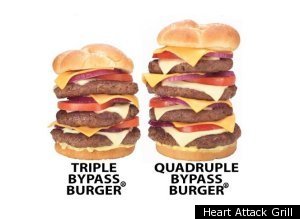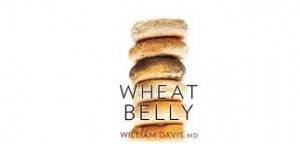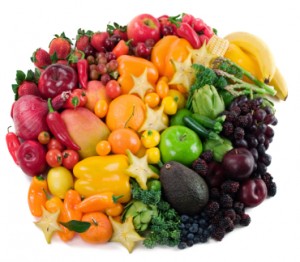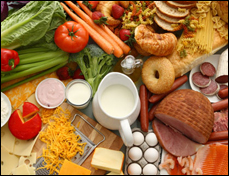
Regular readers of the Allen School Online Blog know that we have some blogging topics that we tend to return to frequently. One of the regular subjects covered here is “ways to make life easier for the busy online student”. Another favorite topic here at ASOB is “healthy eats” or in some cases (see
posts on KFC’s Double Down sandwich) “unhealthy eats to avoid”. Well today’s post rests at the intersection of these two favorite topics.
Let me tell you about this fantastic idea I came across recently, courtesy of
the Simple Dollar website. In a recent post, the bloggers at
Simple Dollar discussed a problem many of us share. As busy students, parents, workers and spouses, we often have little time to prepare healthy, home cooked meals. As a result, we often default to packaged, processed or prepared foods which are often not the healthiest options. But there are only so many hours in the day right? Well the solution to this challenging problem lies in what is referred to as a “Meal Library”.
The idea is to develop a list of satisfying, healthy – and most importantly – easy to prepare, 30-minute meals that everyone in the household agrees are scrum-diddly-rumpcious! The post which I highly recommend reading is available
here and goes into a bit of detail on how to develop such a library and the benefits of building it. Key benefits include saving on groceries, minimized impact on your time, healthier dietary habits and overall familial satisfaction.
 Allen School Online blog has a regular, running series on some of the scariest, fattiest, heart-clogging fast food offerings. A burger in a Tokyo Burger King laden with 4 pounds of bacon; the Heart Attack Grill’s infarction inducing Triple Bypass Burger and KFC’s appalling Double Down sandwich are some examples of these fat-packed atrocities. So it does my heart well to be able to share with readers here some positive information about the consumption of fatty foods. You see, not all fats are created equal. And if you ingest certain varieties of fat, you can expect to see a boost in your cognitive abilities which can help you better navigate through your studies in the field of medical office billing and coding.
Live Science recently analyzed of a study published in the Annals of Neurology Journal wherein it was revealed that saturated fat — like that found in red meat, butter etc. — is associated with worse overall cognitive function and memory in women over time. They also found that a “good” fat — mono-unsaturated fat — was associated with better overall cognitive function and memory. Click here to read the full article. A simple dietary shift can lead to improved ability to think clearly and learn more easily. So eat a nice avocado and think about it.
Allen School Online blog has a regular, running series on some of the scariest, fattiest, heart-clogging fast food offerings. A burger in a Tokyo Burger King laden with 4 pounds of bacon; the Heart Attack Grill’s infarction inducing Triple Bypass Burger and KFC’s appalling Double Down sandwich are some examples of these fat-packed atrocities. So it does my heart well to be able to share with readers here some positive information about the consumption of fatty foods. You see, not all fats are created equal. And if you ingest certain varieties of fat, you can expect to see a boost in your cognitive abilities which can help you better navigate through your studies in the field of medical office billing and coding.
Live Science recently analyzed of a study published in the Annals of Neurology Journal wherein it was revealed that saturated fat — like that found in red meat, butter etc. — is associated with worse overall cognitive function and memory in women over time. They also found that a “good” fat — mono-unsaturated fat — was associated with better overall cognitive function and memory. Click here to read the full article. A simple dietary shift can lead to improved ability to think clearly and learn more easily. So eat a nice avocado and think about it.  Allen School Online blog has a regular, running series on some of the scariest, fattiest, heart-clogging fast food offerings. A burger in a Tokyo Burger King laden with 4 pounds of bacon; the Heart Attack Grill’s infarction inducing Triple Bypass Burger and KFC’s appalling Double Down sandwich are some examples of these fat-packed atrocities. So it does my heart well to be able to share with readers here some positive information about the consumption of fatty foods. You see, not all fats are created equal. And if you ingest certain varieties of fat, you can expect to see a boost in your cognitive abilities which can help you better navigate through your studies in the field of medical office billing and coding.
Live Science recently analyzed of a study published in the Annals of Neurology Journal wherein it was revealed that saturated fat — like that found in red meat, butter etc. — is associated with worse overall cognitive function and memory in women over time. They also found that a “good” fat — mono-unsaturated fat — was associated with better overall cognitive function and memory. Click here to read the full article. A simple dietary shift can lead to improved ability to think clearly and learn more easily. So eat a nice avocado and think about it.
Allen School Online blog has a regular, running series on some of the scariest, fattiest, heart-clogging fast food offerings. A burger in a Tokyo Burger King laden with 4 pounds of bacon; the Heart Attack Grill’s infarction inducing Triple Bypass Burger and KFC’s appalling Double Down sandwich are some examples of these fat-packed atrocities. So it does my heart well to be able to share with readers here some positive information about the consumption of fatty foods. You see, not all fats are created equal. And if you ingest certain varieties of fat, you can expect to see a boost in your cognitive abilities which can help you better navigate through your studies in the field of medical office billing and coding.
Live Science recently analyzed of a study published in the Annals of Neurology Journal wherein it was revealed that saturated fat — like that found in red meat, butter etc. — is associated with worse overall cognitive function and memory in women over time. They also found that a “good” fat — mono-unsaturated fat — was associated with better overall cognitive function and memory. Click here to read the full article. A simple dietary shift can lead to improved ability to think clearly and learn more easily. So eat a nice avocado and think about it. 
